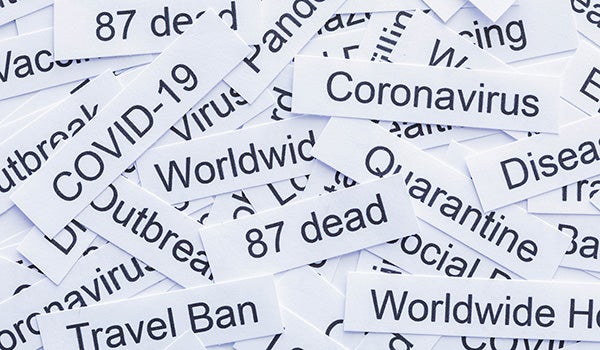Holidays, COVID-19 pose mental health stresses, experts say
Published 9:00 am Thursday, November 26, 2020
|
Getting your Trinity Audio player ready...
|
NILES — Eight months into the COVID-19 pandemic, the mental health impact is still difficult to quantify. As the holiday season approaches with even more stressors than a typical year, Michelle Olson, clinical practice manager of the Riverwood Center in Niles, said the pandemic is not discriminating in its mental health impacts.
“It affects absolutely everybody in the way of mental health,” Olson said. “It’s broken down into categories. In general, overall, we have seen people with negative effects: increase in worry, stress, not sleeping, not eating and a huge increase in alcohol consumption and use. It’s mental health and substance abuse.”
Olson said those individuals with a history of mental health challenges are struggling even more.
As December nears, Olson said she has heard an increase in sadness in patients about not being able to spend Thanksgiving with loved ones. Some patients have not hugged their parents since March.
“I’m seeing that in people every day,” Olson said. “Up until last week, nobody really brought it up, but as people aren’t able to make connection of love, comfort and tradition, there’s an empty void that people have a hard time filling.”
According to the National Institute of Mental Health, as of 2019, 51.5 million adults in the U.S. — or one in five — live with a mental illness ranging from mild to severe.
Olson said the impacts of this are different for everyone, but everyone, young and old, is feeling the strain from the pandemic.
“When things happen, it will impact women differently than men, children differently than an adult, but one thing with this pandemic is that it affects everyone,” Olson said. “We’re seeing it in kids and adolescents in school. School is based on being social and building those skills, and we’re seeing school-aged kids falling behind emotionally and socially.”
For adults, Olson said, the stress of providing for a family, keeping a job and putting food on the table has been a visible reminder of the struggles many face.
“The food pantries have massive lines of people who need food,” Olson said. “We have these survival things we have to worry about for our families as adults.”
For senior citizens and the elderly, Olson said the challenge she and the Riverwood Center are seeing comes from the measures meant to protect them.
“They are isolated and lonely,” Olson said. “We know these things can lead to mental health deterioration and physical health deterioration. All populations are really impacted by this pandemic.”
Frontliners are no exception to this stress, Olson said. She said for medical professionals putting 12- to 18-hour days in, without a break for sometimes weeks, the impact can mean many things.
Olson listed extreme emotional distress, burnout, trauma and emotional dysregulation being challenges the frontline workers are experiencing as they face a pandemic and patients that is continuing to increase in severity.
“They’re really putting their lives on the line and taking care of the people we love,” Olson said.
Olson said it is important to know that while the nation faces this pandemic, everyone is experiencing an impact in a different way.
“We are wired for connection,” Olson said. “To know you’re not alone is a huge reassurance.”
Olson encouraged anyone who was feeling overwhelmed to reach out to the Riverwood Center in Niles. The center is located at 115 S. St. Joseph Avenue. The phone number is (269) 684-4270.
“If you need to talk to someone, we have an intake department,” Olson said. “Even if you might not be eligible for services at Riverwood, we give resources in the community for mental health. They’re kind of hidden, so we are always happy to share that list.”







